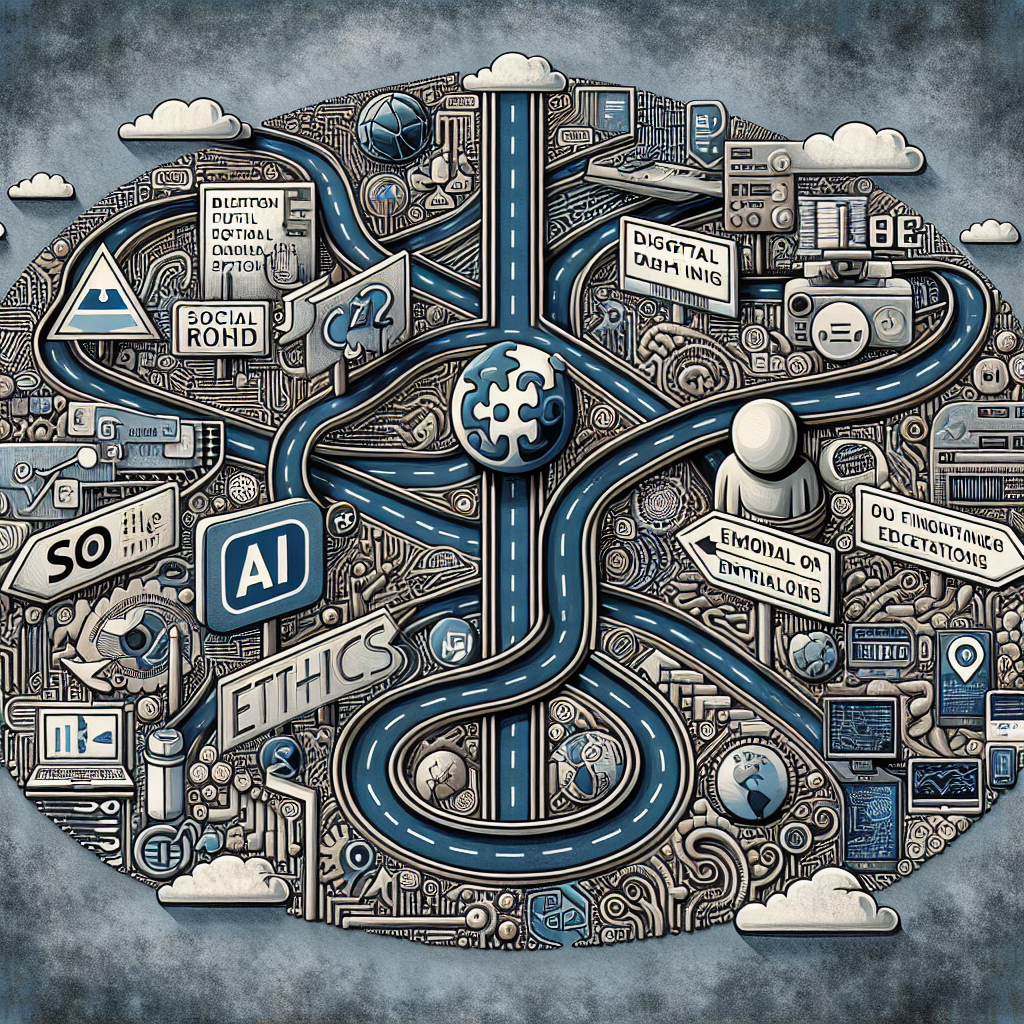In the fast-paced world of digital marketing, the rise of artificial intelligence is transforming how we connect with customers. However, as digital marketers harness the power of AI, they need to face an important issue: ethics. Understanding AI ethics is crucial in creating responsible and effective marketing strategies. This article will discuss the challenges and responsibilities that digital marketers encounter when using AI.
What is Artificial Intelligence
Artificial intelligence, or AI, refers to computer systems that can perform tasks that usually require human intelligence. These tasks include:
- Learning from experience
- Understanding language
- Recognizing patterns
- Solving problems
AI is being used in many areas, including customer service, content creation, and data analysis. While AI offers numerous benefits, it also raises ethical questions.
The Importance of Ethics in Digital Marketing
Digital marketing uses online platforms to reach potential customers. It can involve various strategies like social media marketing, email campaigns, and online advertisements. As marketers use AI to make better decisions, they must prioritize ethics. Here are some reasons why ethics matter in digital marketing:
Building Trust with Customers
- Transparency: When businesses are open about how they use AI, customers are more likely to trust them.
- Privacy: Respecting customer data and privacy can enhance a brand’s reputation.
Creating Responsible Campaigns
- Avoiding Manipulation: Ethical marketing ensures that AI is used to inform and not manipulate consumers.
- Promoting Inclusivity: Marketers should use AI to create campaigns that are inclusive and respectful of all groups.
Avoiding Legal Issues
- Compliance: Following ethical guidelines can help businesses avoid legal problems related to data use and consumer protection.
- Reputation Management: Ethical violations can lead to negative publicity and damage a brand’s reputation.
The Challenges of AI in Digital Marketing
While AI can improve marketing efficiency, it also presents several challenges. Here are some common dilemmas that digital marketers face:
Data Privacy Concerns
- Data Collection: Marketers often use large amounts of data to train AI systems. Collecting this data raises privacy concerns for customers.
- Consent: Businesses need to obtain clear consent from customers before using their data.
Bias in AI Algorithms
- Unintentional Bias: AI systems can unintentionally learn biases present in the data. This can lead to unfair targeting or exclusion of certain groups.
- Transparency in Algorithms: Marketers should be aware of how AI makes decisions and strive for fairness.
Misleading Information
- Deepfakes and Misinformation: AI can create realistic images and videos, leading to potential misuse in advertising or spreading false information.
- Ethical Content Creation: Marketers must ensure that AI-generated content is accurate and trustworthy.
Implementing Ethical AI Strategies
To navigate the complexities of AI ethics, digital marketers should implement the following strategies:
Educate Yourself and Your Team
- Stay Informed: Keep up with the latest discussions and developments in AI ethics.
- Training: Provide ethical training for your marketing team to understand the implications of AI use.
Prioritize Transparency
- Communicate Clearly: Be upfront with customers about how their data will be used and why.
- Create Trustworthy Brands: Building a trustworthy brand helps customers feel safe when interacting with your marketing efforts.
Foster Inclusivity
- Diversify Data Sources: Use diverse data sets to minimize bias and ensure more representative AI outputs.
- Test Campaigns: Regularly test marketing campaigns to ensure they are fair and effective for all audiences.
The Future of AI Ethics in Digital Marketing
As technology continues to evolve, so will the ethical dilemmas that digital marketers face. Here are some future considerations:
Evolving Regulations
- Adapting to New Laws: Marketers will need to stay updated on new regulations regarding data use and consumer protection.
- Global Standards: International businesses must navigate varying ethical standards across countries.
Advanced AI Technologies
- Continued Innovation: As AI technology advances, marketers will need to assess new ethical challenges that arise.
- Balancing Innovation with Responsibility: Marketers must find ways to innovate while remaining responsible in their practices.
Conclusion
Navigating AI ethics is crucial for digital marketers in today’s technology-driven world. By understanding the importance of ethics, addressing challenges, and implementing responsible strategies, marketers can create effective campaigns that respect customer rights and build trust. As AI continues to shape the future of marketing, a strong ethical foundation will be essential for sustainable success.
Call to Action
As a digital marketer, take the time to reflect on your own practices. Are you using AI in a way that is ethical and responsible? Start a conversation with your team about AI ethics and explore how you can improve your marketing practices moving forward. The future of marketing is exciting, but it is also filled with critical moral choices. Make sure you are on the right side of history.

